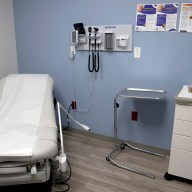Some people collect credit cards for free airline miles or other sign-up rewards. Marcia Noyes, a communications director in San Antonio, collects bank accounts instead.
“I have five different checking and savings accounts, and I opened them for their bonuses,” Noyes says.
Some financial institutions offer new customers sign-up bonuses that typically range from $50 to $300. The biggest bonuses often come from big banks, and the money can seem like easy cash. But the accounts being promoted aren’t always the best deals, because they may come with high fees or low interest rates — or both. Noyes agrees customers need to do their homework and should take a pass if the “free” money comes with costly conditions. Before you open an account because of a sign-up bonus, consider all the variables.
Check for restrictions
To qualify for a bonus, a financial institution could require that you keep a certain minimum balance, make a certain number of debit-card transactions or set up direct deposit on a new account. Read the small print to ensure you can meet the requirements before you agree to any sign-up offer. Noyes, for example, says she’s fine with setting up direct deposit but draws the line at having to make debit-card transactions. “I hate debit cards, so I won’t consider any bonuses with those requirements,” she says. Many banks and credit unions reserve bonuses for new customers. If you’ve opened a checking account at the same institution within the past year, chances are you won’t be able to take advantage of a sign-up promotion. » MORE: NerdWallet’s best bank account bonuses
Research other fees
A bank could offer a $100 sign-up promotion on a featured checking account, but if that account comes with a $15 monthly fee, you’d face a net loss of $80 over one year — $180 in fees minus the $100 bonus. A better option would be a free checking account that doesn’t charge a monthly fee. Also, you have to pay taxes on deposit bonuses, so the cash perk is worth less than face value after taxes.
To avoid other potential pitfalls, read the bank’s fee schedule, which you usually can find on its website. Pay close attention to information about out-of-network ATM charges, monthly service costs and other fees. Some banks will waive monthly checking fees for customers who meet special requirements, such as keeping a specific minimum balance, signing up for direct deposit or opening a line of credit. But if you think you’ll have a tough time meeting a promotional account’s requirements, it’s best to pass on it. » MORE: NerdWallet’s best checking accounts
Compare effort versus reward
If you switch financial institutions, it will take some time and work. You may have to move direct deposits, automatic bill payments and recurring transfers from your old account to the new one. Check in with your old bank six to eight weeks after you close the account to make sure no transactions are posted mistakenly. Also, with a promotional offer, don’t expect to open a new account and get your bonus money instantly. The money often isn’t applied until the account has been open for a certain amount of time, frequently 90 days. » MORE: How to switch banks
Think long term
If you qualify for an account promotion with a decent-size bonus, see whether the account has continuing low fees or earns good interest rates. If so, it may make sense to open an account and get the bonus. You’d get benefits today and in the months to come. If not, skip the bonus opportunity and look for an account with lower fees and fewer requirements. That would be a bonus worth going for.
Margarette Burnette is a staff writer at NerdWallet, a personal finance website. Email: mburnette@nerdwallet.com. Twitter: @margarette. This article was written by NerdWallet and was originally published by USA Today. The article Should You Turn Down Free Money From a Bank? originally appeared on NerdWallet.
















